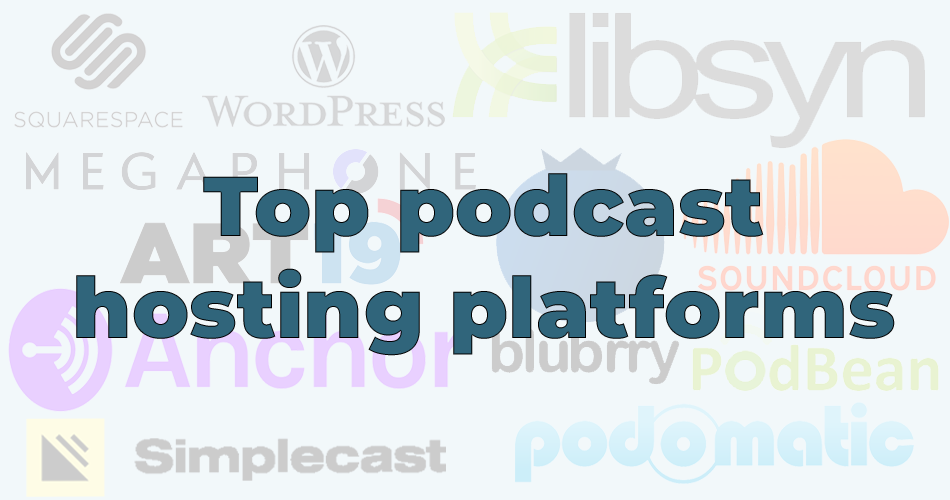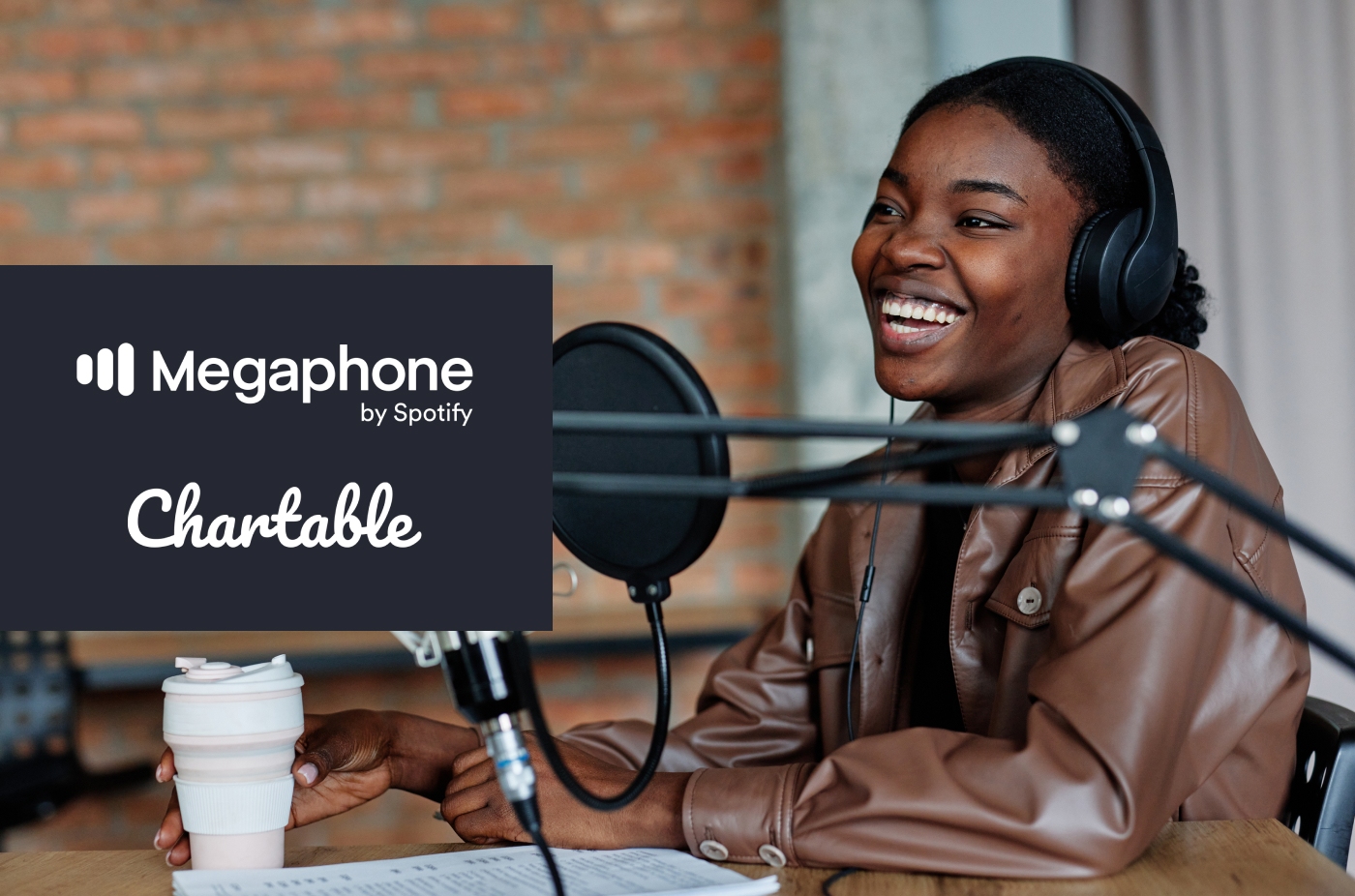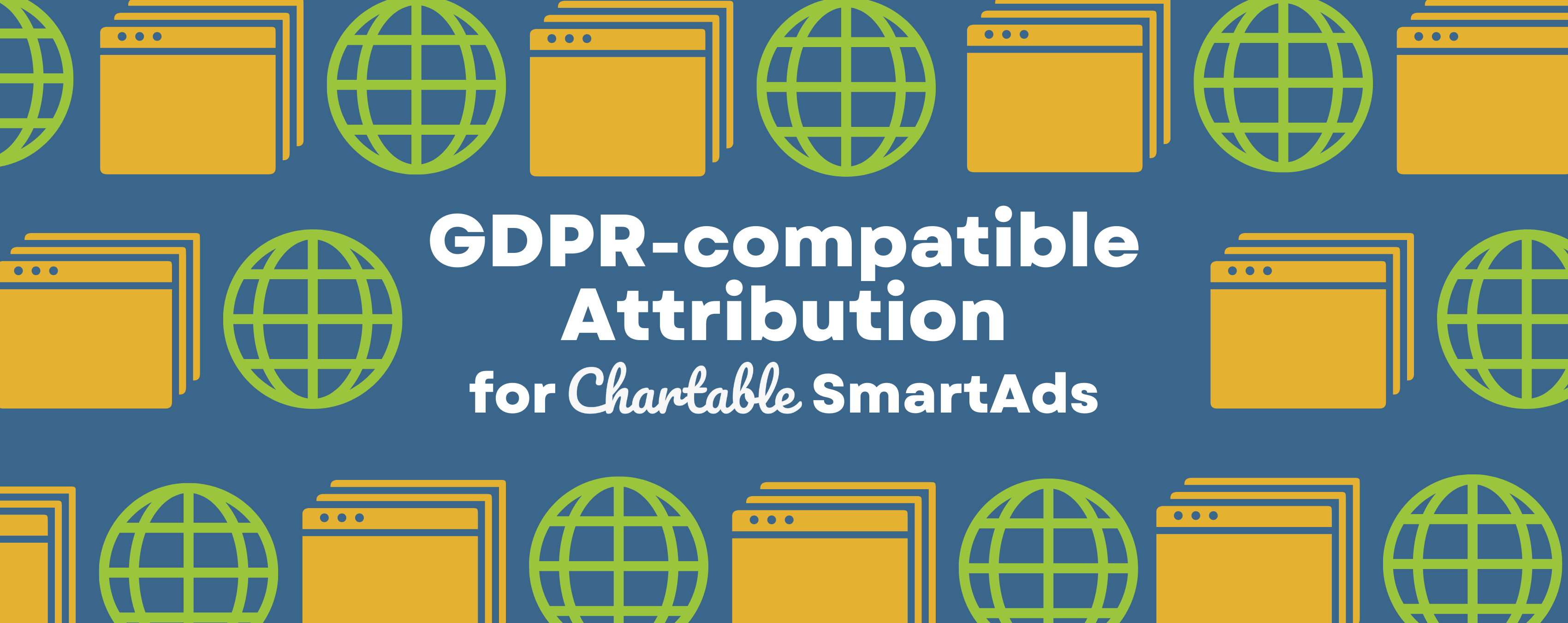[UPDATED August 28, 10p EST—See our new post with updated stats!]
At Chartable, our mission is to empower podcast creators to understand and grow their audience. We maintain a database of every podcast in Apple's directory, along with their episodes, ratings, reviews, and chart positions. As of this writing we're tracking around 510,000 podcasts, almost the entire Apple directory. Apple, being Apple, doesn't provide much information about the podcasts in its directory. But there's a lot of questions we can answer with our data.
Because the directory doesn't actually host the files themselves, we can dig into the RSS feeds behind each podcast to find out which services are hosting each show. I started by just looking at which domains hosted each podcast, but that wasn't quite enough—some feeds are wrapped by Feedburner, a service for RSS statistics, or by Podtrac, an analytics service. And many services are hosted on individual domains like mypodcast.com, so just looking at the domain itself isn't enough. But with enough persistence (and caffeine), I've identified the vast majority of hosting services.
Now we can ask: Which hosting services are powering the most podcasts in the entire directory? There are a few different ways to frame the question. Let's start with the simplest—looking at all 500,000 podcasts in the database:
The graph shows just how decentralized the podcast ecosystem is—Soundcloud, the biggest platform, has under 15% of the entire market, and Anchor ranks #2 with 9.5% of the market. Some of these names, like Libsyn or Blubrry, might be familiar to you if you're involved in podcasting. Others are more unexpected, at least from a US-centric perspective: ivoox powers many Spanish-language podcasts, Ximalaya many podcasts in China, and SSenhosting is big in Korea.
So is Soundcloud the dominant podcast hosting platform? It depends on how you slice the data. It's not clear how meaningful it is to look at the entire podcasts directory, because many podcasts are no longer updating their feeds, and some podcasts are really more like online courses or audiobooks than “traditional” podcasts.
To get more meaningful insights, we can ask some variations of our original question. One place to start would be the Apple Podcasts charts. Which hosting services power podcasts in the Top 400 overall chart in the US?
This looks pretty different: the top service, Libsyn, has about a quarter of the market. And Soundcloud, the top platform across all podcasts, has now dropped to #3, while Anchor has dropped from #2 to #11.
Two new companies, Art19 and Megaphone, power a significant percentage of the top 400 but don't make a dent when looking at all podcasts. Both companies offer features for professional podcasters, like dynamic ad insertion, that differentiate them from services like Soundcloud. We also see that many publishers handle their hosting themselves: NPR powers their own shows, and Barstool Sports and ESPN do as well.
The overall Top 400 represents just one slice of the growing podcast market, though. What about new podcasts? What services are new podcasters using for their shows?
Which hosting services are powering podcasts published in the last 6 months?
Again, we get a VERY different picture than either of our first two graphs—Anchor is powering a third of new podcasts!
To be honest, when I first saw this result, I thought I must've made a mistake. It seemed crazy that a single platform could capture that much of the market share of new shows. However, Anchor's focus on making publishing to Apple easy seems to have paid off—they publish all shows under their own Apple Podcasts Connect account, so new podcasters don't have to go through the application process (and waiting period) to get their shows listed in the directory.
The raw numbers don't tell us much about the quality of the shows, however. The difference between the services powering the top 400 and all new podcasts hints at a difference, though: Anchor powers a plurality of new podcasts but few highly charting shows.
Conventional wisdom in the podcasting community is that it's easy to start a podcast, but most people hit a wall before too long. One way we could further slice the data is to ask how many podcasts from each platform manage to create more than a few episodes.
Slicing it this way, we find that 16% of Anchor's podcasts publish 10 or more episodes. In contrast, 45% of podcasts hosted on Soundcloud publish 10 or more. Both Soundcloud and Anchor offer free plans—Libsyn does not. We could hypothesize that podcasters who are paying money to host their show are more committed to doing more episodes, and we'd be correct: 77% of Libsyn podcasts have 10 or more episodes.
So, to get back to our first question: who powers the most podcasts? As of mid-August 2018, Soundcloud does on a pure volume basis. Given the number of new shows powered by Anchor, though, Soundcloud won't be top of that list much longer. Just looking at the number of podcasts doesn't quite tell the entire story, though: because Anchor makes starting a podcast and publishing to Apple so easy, many Anchor podcasts don't publish more than a few episodes.
Here's the breakdown for podcasts created in the last 6 months with 10 or more episodes:
This might be the most accurate picture of where things currently stand. Anchor still publishes the most podcasts that have hit the 10-episode mark, but the field is much narrower; Soundcloud and Libsyn are a close second and third.
So what have we learned? Zooming out, the podcast hosting services market is very fragmented, and will only get more fragmented over time. There are many new entrants aiming for pieces of the market, like Transistor.fm targeting companies who want a branded podcast, or Messy.fm competing directly with Anchor.
What does the future hold for podcast hosting? Will Anchor continue to grab a greater share of new podcasts? Will Art19 and Megaphone take over more of the Top 400 podcasts? We'll just have to see—stay tuned.
For more posts like this, subscribe to our newsletter using the form below or by visiting https://chartable.com/blog. And if you're a podcaster, be sure to sign up for Chartable's podcast analytics.
Have any questions about podcasts you'd like answered? Just reach out via email at [email protected] or on Twitter @ChartableDotCom.
[Aug 22, 2p ET] A big thank you to Rob from Libsyn, James from Podnews, and Kiriki from Streamguys for suggesting ways to get more accurately at the data. Kiriki in particular pointed out that Streamguys powers many podcasts but allows them to customize their domain name. The additional DNS lookups mean that things are taking a bit longer than I'd like, but I'll have updated data soon.
[Aug 21, 2:30p ET] Thanks to Daniel J. Lewis, fixed some lingering Podtrac and Feedburner feeds that were still hanging out in the database. This only affected the "All time" and "Top 400" graphs, which have been updated. There was no change in the overall service rankings.
Additionally, Daniel and others pointed out that some podcasts host their feeds and media separately. I'm working on finding out how many do so and whether that might change the rankings. I'll post updated data when it's available.




